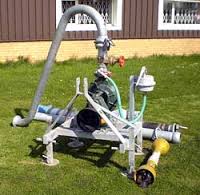To most of us, farming and agriculture is taken at its face value, which is simply growing grains, vegetables, fruits etc. We don’t see it as being the backbone of some economies, neither do we see how difficult these processes are, nor how much skill, expertise and knowledge goes into agriculture. In developing countries, agriculture (which falls under the primary sector of production in an economy), accounts for most of the country’s income as this produce is often exported to countries that don’t have the climate or the need to produce within their own country. Further, high agricultural activity in a country also helps the country to become self sufficient, meaning it can consume its own produce rather than importing from other countries, which is an expense that would negatively affect the country’s balance of payments if there was little to no agricultural activity happening in the country.
Farming incorporates a variety of skills and a wealth of knowledge. In some economies, this knowledge is often gained through experience as it is an occupation which has, in some instances, become the family occupation with irrigation pumps for sale. Some countries even offer courses and degrees in agriculture at their universities. Agriculture requires the knowledge of the climate, the weather, the soil and the land itself. Farmers will need to know how to cultivate the soil, harvest the crops, keep the plants healthy, and that requires careful study through observation and experience. They will need to know how to keep their crops healthy during periods of extreme weather, as crops may die in very hot seasons and monsoons could cause floods which could destroy crops. A farmer would also have to keep himself updated on the weather patterns and will have to study what seasons are favorable for plantation, cultivation and harvest.
In addition to all this knowledge on cultivation itself, farmers should ensure that all the natural resources are readily available. This means the availability of animals or machines for transportation or to plough the fields. It also requires a good irrigation system to regulate and control the flow of water to the fields. For this to be in place, farmers should have adequate knowledge on irrigation systems. Channel gates are a vital component of an irrigation system, as it controls how the water is pushed out.
The efficiency of the irrigation system is important as it eases the burden of manually watering and maintaining the plants by pumping water to the fields. It is vital that the system works properly during periods of drought or especially hot seasons. In case of failure, repairs will have to be made, and pump spare parts will have to be bought in order to ensure that the system is fixed. Conclusively, we can see that those involved in agriculture need a wealth of knowledge which extends far beyond simply growing plants.
